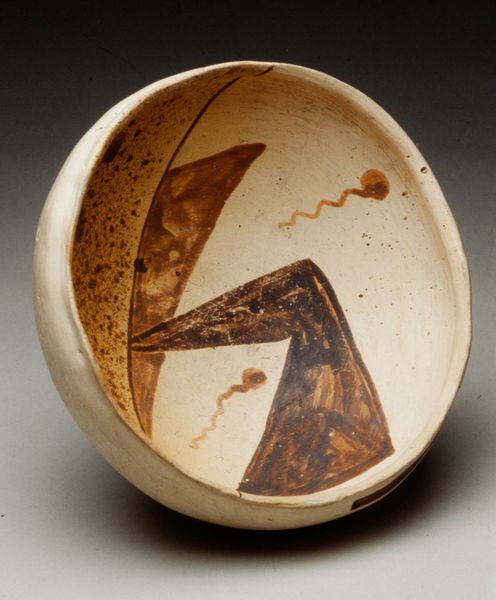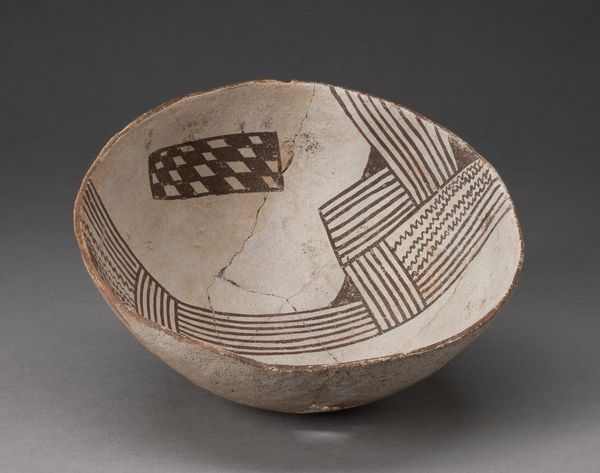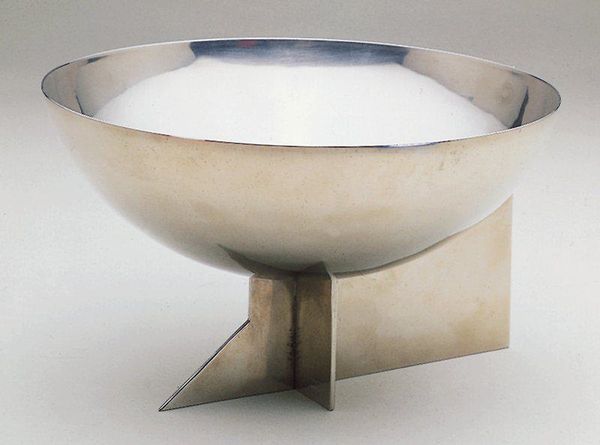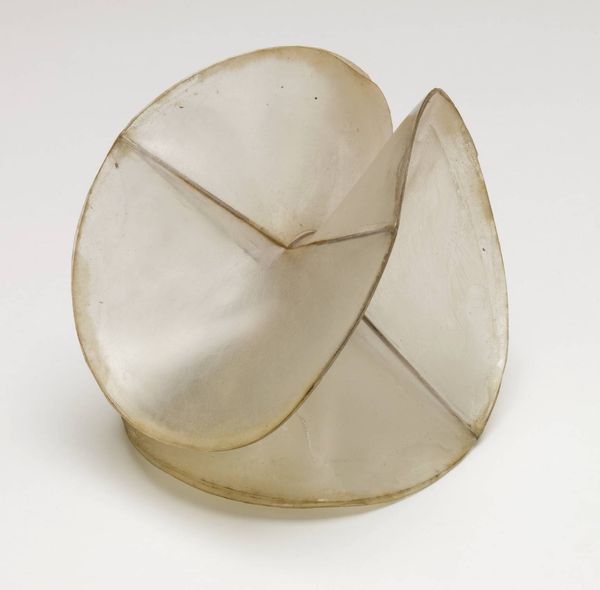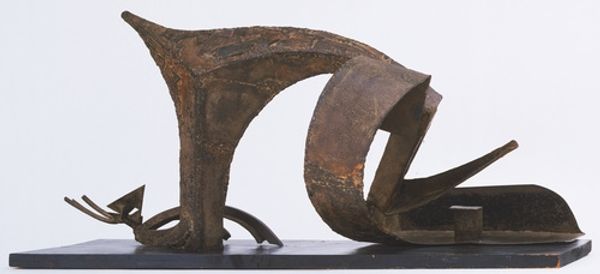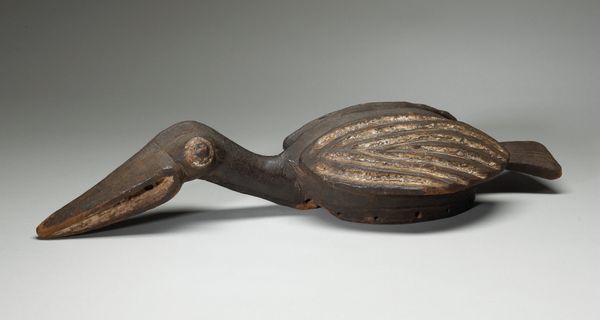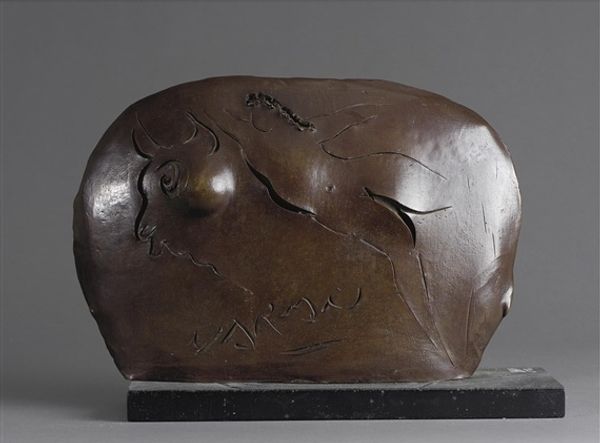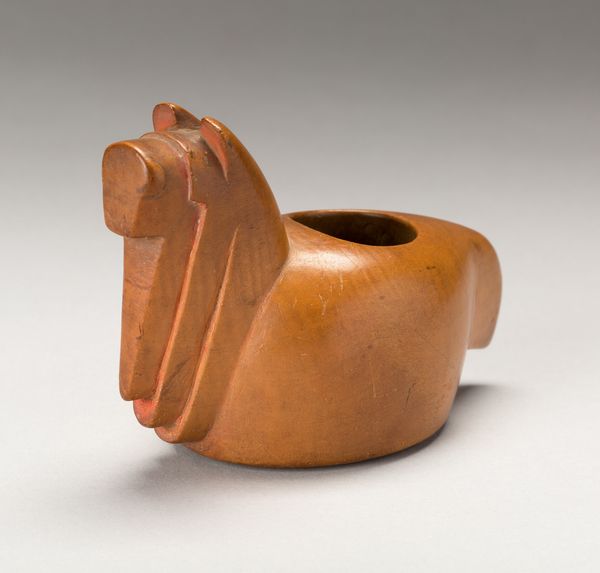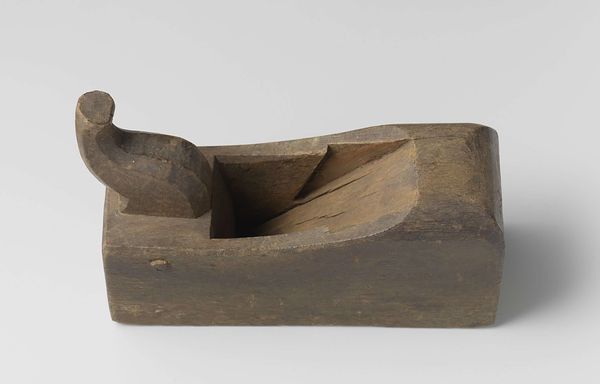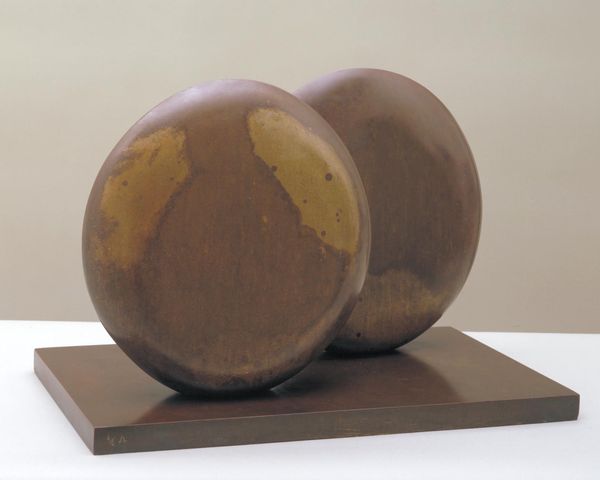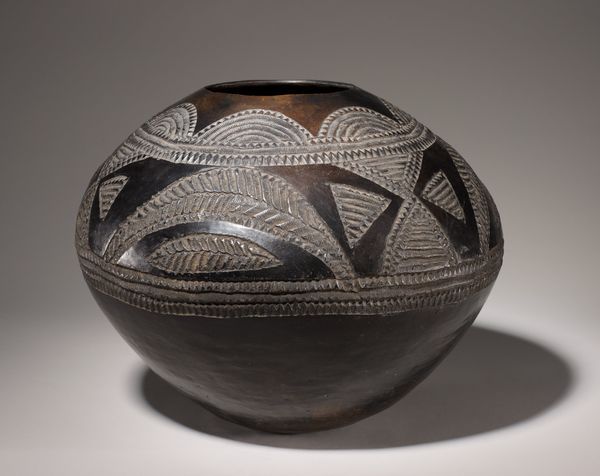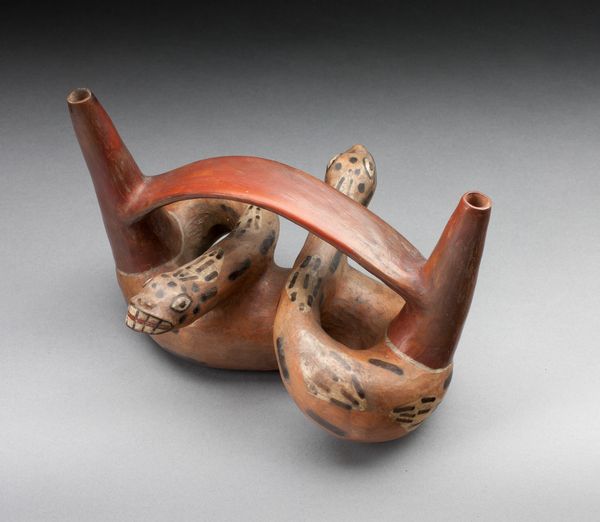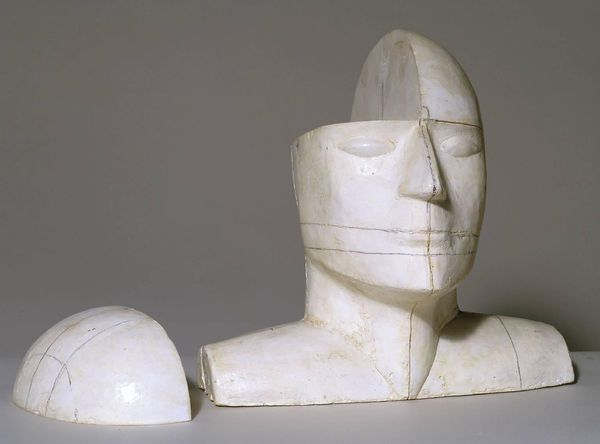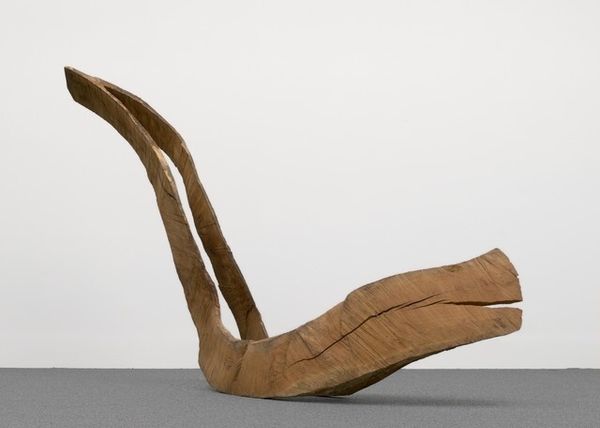
Dimensions: object: 337 x 632 x 298 mm
Copyright: © Bowness, Hepworth Estate | CC-BY-NC-ND 4.0 DEED, Photo: Tate
Curator: Barbara Hepworth's "Tides I," part of the Tate collection, evokes such a strong feeling of serenity, doesn't it? Editor: It does. The rough, weathered wood, that almost yin and yang-like interior, it’s as if the piece is breathing some sort of ancient wisdom, or maybe just whispering of Cornish shores. Curator: It’s fascinating how Hepworth transforms such a solid material, wood, into something that seems to almost ripple and flow. She was so moved by the sea, that she then translates it into the object, and we can feel it. Editor: Absolutely. And that interplay between the natural material and the imposed form, those carved voids create this lovely tension, the push and pull that speaks to the way culture interacts with the environment. Curator: For me, there’s a quiet invitation here, an invitation to consider the interplay between inner space and outer form, and that’s something I try to do every day. Editor: And for me, it's a reminder of how artists can take something as simple as wood and transform it into a powerful statement about our relationship with the world around us.
Comments
Join the conversation
Join millions of artists and users on Artera today and experience the ultimate creative platform.
tate 3 months ago
⋮
This sculpture belongs to a group of oval wood carvings dating from the mid-1940s. The splits in the wood occurred while the work was in progress, and so the artist abandoned it unfinished. Nonetheless, the sculpture embodies a strong empathy with the Cornish landscape which inspired it, and with the material used: 'I believe that the understanding of the material and the meaning of the form being carved must be in perfect equilibrium.' There is another, smaller version, 'Tides II', which was executed in the same year. This sculpture was presented to the Tate Gallery by Ben Nicholson in the year of Hepworth's death. Gallery label, September 2004
